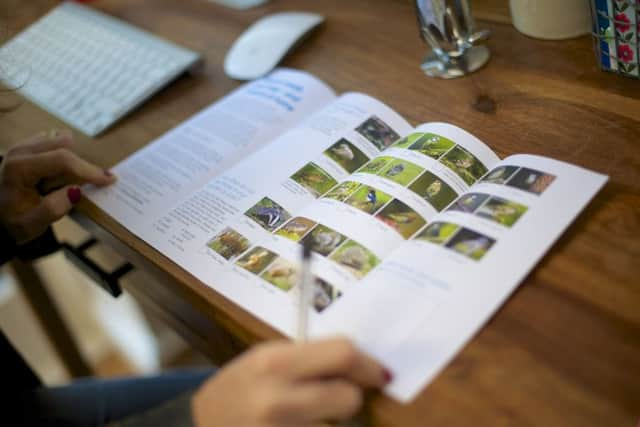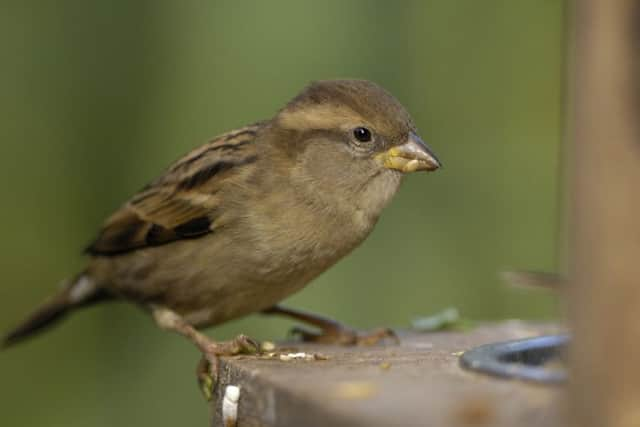RSPB Big Garden Birdwatch results revealed for West Sussex
and live on Freeview channel 276
In West Sussex, the top three most common garden visitors were house sparrows, starlings and blue tits.
While house sparrows held the top place in the West Sussex charts, residents reported 0.3 per cent fewer sightings than in 2018 and West Sussex was the only county in the South East to show a continuing declining in house sparrows.
Advertisement
Hide AdAdvertisement
Hide AdUK house sparrow numbers have fallen by 56 per cent since the public began tracking these birds as part of the Big Garden Birdwatch, but in recent years, national numbers have slowly started to rise again.


West Sussex residents also reported 14 per cent fewer sightings of starlings this year.
Starlings have faced dramatic population declines across the UK in the past few decades and these already threatened birds are still very much at risk across the country.
Another threatened species, the song thrush, does seem to be faring well in West Sussex, with the 2019 results showing a 25.9 per cent increase in sightings across the county compared to 2018.
Advertisement
Hide AdAdvertisement
Hide AdNow in its 40th year, the Big Garden Birdwatch is a chance for people of all ages to count the number of birds that visit their garden helping the RSPB build up a picture of how they are doing.


House sparrows remained at the top of the UK rankings with almost 1.2 million sightings throughout the weekend, but the latest results have revealed a mixed national picture for garden birdlife with 15 of the top 20 species returning fewer sightings in gardens across the country than in 2018.
Almost half a million people across the UK spent an hour watching the birds that visit their garden or outdoor space.
In the South East, 92,594 participants took part in the survey; a 21 per cent increase on South East participation compared to 2018.
Advertisement
Hide AdAdvertisement
Hide AdThis figure includes 11,354 children who took part in the Big Schools Birdwatch, designed to help school children contribute to the valuable citizen science project.
Nic Scothern, the RSPB’s South East regional director, said: “It’s incredible to see that so many people across the South East show a real passion and concern for the wildlife in their gardens and green spaces. People are becoming more and more aware of the challenges and threats that our UK wildlife is currently facing. Citizen science surveys, such as the RSPB’s Big Garden Birdwatch, really help empower people of all ages and backgrounds to play an active part in conservation, and to speak out for the wildlife they love and want to protect.”
Let Nature Sing
To highlight the crisis that nature is facing and the loss of over 40 million wild birds from the UK in just half a century, the RSPB is releasing a specially-created track of birdsong titled ‘Let Nature Sing’.
The single contains some of the most recognisable birdsong that we used to enjoy, but that are on their way to disappearing forever.
Advertisement
Hide AdAdvertisement
Hide AdA compilation of beautiful sound recordings of birds with powerful conservation stories including the cuckoo, curlew, nightingale and turtle dove.
The charity is calling on the public to download, stream and share the single (available to pre-order from today) and help get birdsong into the charts for the first time, spreading the word that people across the UK are passionate about nature’s recovery.
Martin Harper, the RSPB’s director of conservation, said: “Birds are such iconic parts of human culture but many of us no longer have the time or opportunity to enjoy them. The time we spend in nature, just watching and listening, can have huge benefits to our wellbeing, especially in these stressful times. The RSPB wants to help more people reconnect with their wilder sides and is bringing birdsong back into people’s busy lives by releasing a soothing track of pure unadulterated bird song. We hope that by understanding what we have lost that we inspire others to take part in the recovery. Without nature our lives are so less complete.”
The track is designed to help reconnect the nation with nature, helping people find a moment to relax and promote a feeling of tranquility, as birdsong has been proven to aid mental health and promote feelings of well-being.
Advertisement
Hide AdAdvertisement
Hide AdFor a full round-up of all the RSPB Big Garden Birdwatch results and to see which birds were visiting gardens where you live, visit www.rspb.org.uk/birdwatch
---